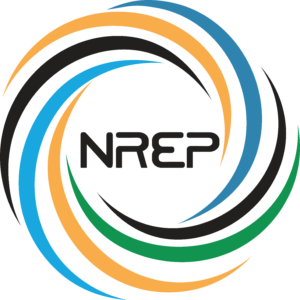NREP Highlights
The 5th edition of the Annual Renewable Energy Conference & Expo, a premier event fostering innovation and collaboration in the renewable energy sector.
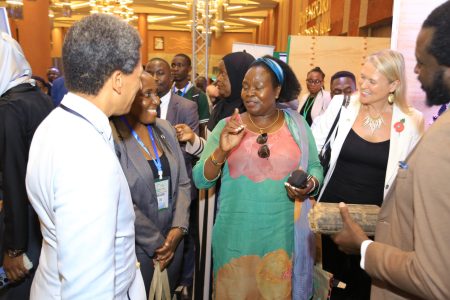
The Ministry of Energy and Mineral Development, in partnership with the National Renewable Energy Platform, is excited to announce the Renewable Energy Conference & EXPO (REC25 & EXPO) from 20th October to the 22nd of October, 2025, Kampala Serena Hotel, Uganda. This event will be a pivotal moment in our journey towards a sustainable energy future, and we invite you to be part of it.
Join us as we bring together experts, innovators, policymakers, and stakeholders to discuss and advance the clean energy agenda. Your participation is crucial to the success of this conference, and we look forward to your invaluable contributions.
Women & Youth Outreach at the Social Innovation Academy (SINA) in Mpigi Town
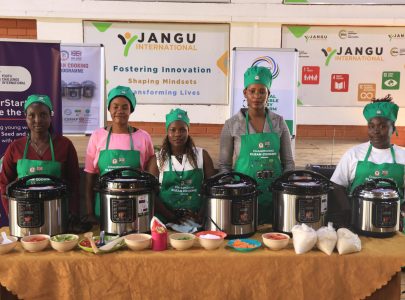
On August 20th, 2025, the National Renewable Energy Platform (NREP) held a clean cooking outreach campaign at the Social Innovation Academy (SINA) in Mpigi town. This outreach complimented the Mpigi district outreach campaign at the Central Market under the Behavioral Change Communication for Electric Cooking (BCCeC) Project. The BCCeC is implemented by NREP with support from the Ministry of Energy and Mineral Development, in partnership with the Modern Energy Cooking Services (MECS) programme with funding from the UK government.
Sparking Change: Mubende Embraces Electric Cooking Revolution
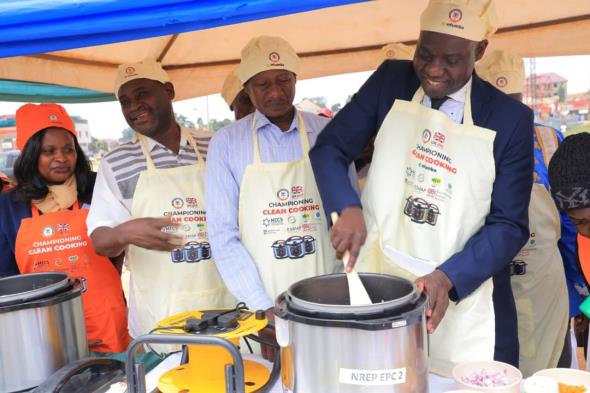
By promoting clean cooking technologies, Uganda can mitigate climate change, improve public health, and foster sustainable development. This initiative aligns with the country’s Vision 2040, which aims to transition 65% of the population to cleaner cooking methods. With the support of key stakeholders and the media, the campaign is poised to make a significant impact in the region.
Mpigi Community Outreach on Clean Cooking
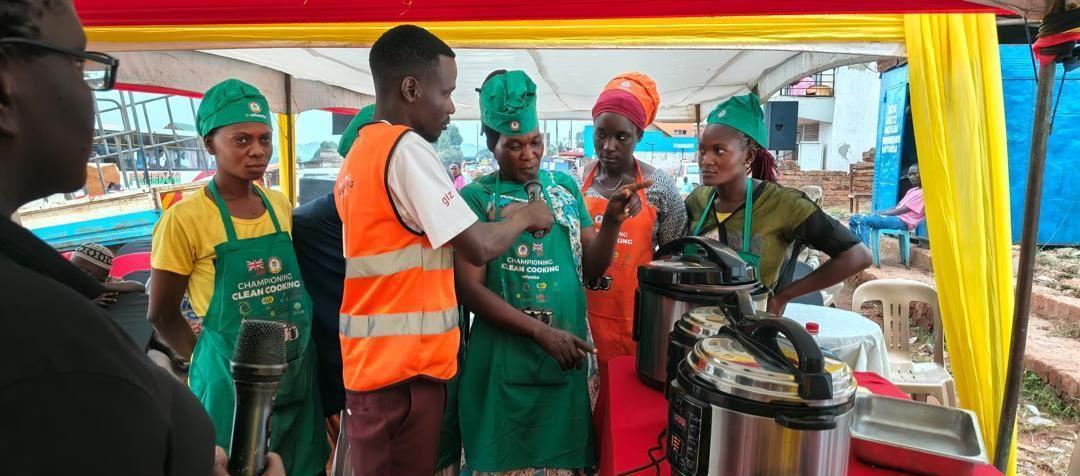
This event brought together government representatives, clean cooking technology providers under UNACC, and community members to raise awareness about the negative impacts of cooking with traditional biomass to human health and the environment, make a case for clean cooking technologies and practically demonstrate their functionality.
Bushenyi District Takes a Step Towards Clean Cooking
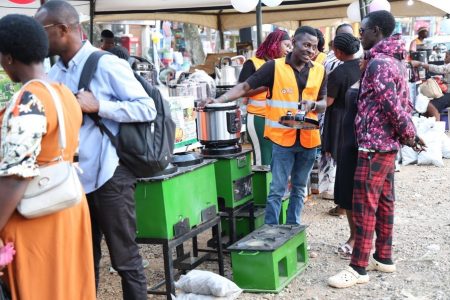
At the heart of this campaign was a one-day workshop held at the Ishaka Division Offices, aiming at raising awareness, challenging persistent myths about electric cooking, and giving participants first- hand cooking experience with Electric Pressure Cookers and other modern cooking solutions
Tororo Embraces the Promise of Clean Cooking
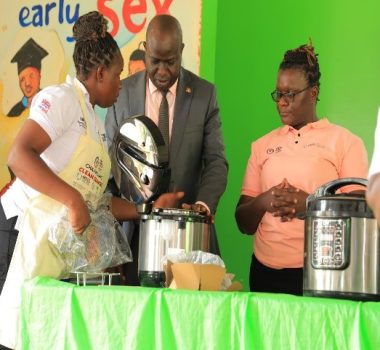
The campaign formed part of a weeklong clean cooking exhibition held along Bazar Street at Tororo Main Market from 4th to 8th August 2025, coupled with an engaging radio talk show on East FM. The events aimed to inspire households and institutions to transition from traditional cooking methods, such as the three-stone fire, to safer, cleaner, and more efficient electric cooking technologies.
RE Sector Highlights Around the Region and Globe
1. Vivo Energy Champions Clean Cooking for Schools at Headteachers’ Conference
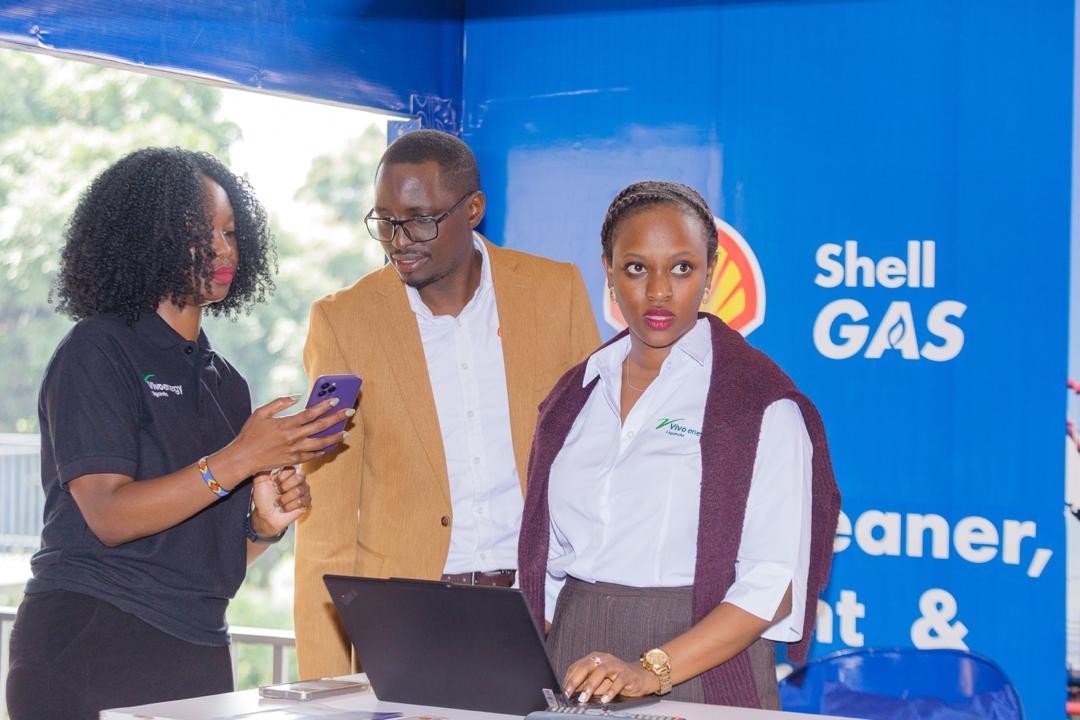
Vivo Energy Uganda, the distributor of Shell-branded fuels and lubricants, is showcasing its recently launched Shell Gas clean cooking solutions for schools at the Association of Secondary School Headteachers of Uganda (ASSHU) annual conference. At the conference that started on Monday and will run up to Thursday at Speke Resort Munyonyo, the company has also supported the organisation with shs 20 million towards event organisation and logistics. Speaking at the event, Alvin Bamutire, the LPG Manager at Vivo Energy Uganda, emphasised the company’s commitment to supporting the education sector while driving awareness of the benefits of adopting clean, safe, and reliable cooking energy.
2. Biogas brings hope to West Nile’s rural health facilities

In rural parts of West Nile, unreliable electricity has for decades crippled health service delivery. Most facilities either had no power connection at all or relied on solar systems and diesel generators, which are expensive and often unreliable. The consequences were dire. At Odupi Health Centre III in Terego District, mothers recall having to give birth under the light of torches. “When I was delivering my firstborn, we were in darkness. It was frightening until the nurses brought torches,” said Ms Maula Letaru, a mother of two.
3. Energy democracy: A quiet revolution

In Uganda, where nearly half the population lacks reliable electricity, the national power grid often remains just a distant promise. While many rural homes rely on small, individual solar set-ups for basic needs, a more powerful and transformative solution is taking root: communities building and owning their power sources. This is energy democracy in action, a grassroots movement reshaping Uganda's energy future. This movement is fundamentally changing what energy access means. Solar cooperatives are emerging not just as a stopgap, but as a revolutionary alternative to the unreliable national grid and costly, polluting diesel generators.
4. Clean energy gives hope to Kiryandongo residents

Seated on a makeshift bed, draped in a modest hijab and wearing dark- rimmed spectacles that frame her calm but weary eyes, 57-year-old Afaf Mohammed carefully strikes a match to light the small gas cylinder stove in her room. A small battered aluminium pan is placed over the !ame, oil sizzling as she sprinkles in chopped onions and pepper she had prepared earlier. What doubles as her daughters’ bedroom at night now serves as a kitchen during the day. “This gas stove has changed everything for us in Sudan, we were using gas, but when we reached here we had to use wood for cooking. It was not easy for, ” she says, gently stirring the contents of the pan.
5. Putting Solar to Work Requires Patient Capital

From the earliest days of off-grid solar electrification, it was clear that solar could do more than light up homes. As kerosene lamps were replaced with LED bulbs, shops stayed open longer and expanded offerings. New business ventures began to emerge almost immediately after a solar home system was installed, as entrepreneurs found new ways to put their electricity to work. Solar off-grid companies learned quickly that customers weren’t just asking for watts, they were asking for tools. Radios, phones, barber clippers, and small appliances adapted to solar power fast. Soon the question shifted to bigger appliances: could solar replace diesel mills or the manual labor of pounding maize and other grains? Manual processing almost always done by women takes hours every day. Diesel mills, when available, are expensive long-term and polluting. Milling isn’t a luxury; it’s a necessity that needs to happen one way or another and solar was poised to solve some of the pain points that off-grid communities had been facing.
6. Nyagak III commissioned, boosting West Nile’s power capacity to 9.9MW
On 1st August 2025, the 6.6MW Nyagak III hydropower plant was commissioned in Zombo District, West Nile, raising the region’s generation capacity to 9.9MW. For decades, West Nile struggled with severe power shortages until it was finally connected to the national grid in 2024, easing a burden that had persisted since independence. The $20 million project, developed through a public–private partnership between the Government of Uganda and Dott Services, is expected to generate about 36GWh annually, powering thousands of households and businesses. Nyagak III not only strengthens local supply but also supports Uganda’s shift to renewable energy and greater regional development.
7. Solar Energy Players Renew Calls for Quality, Financing as Uganda Eyes Universal Acess
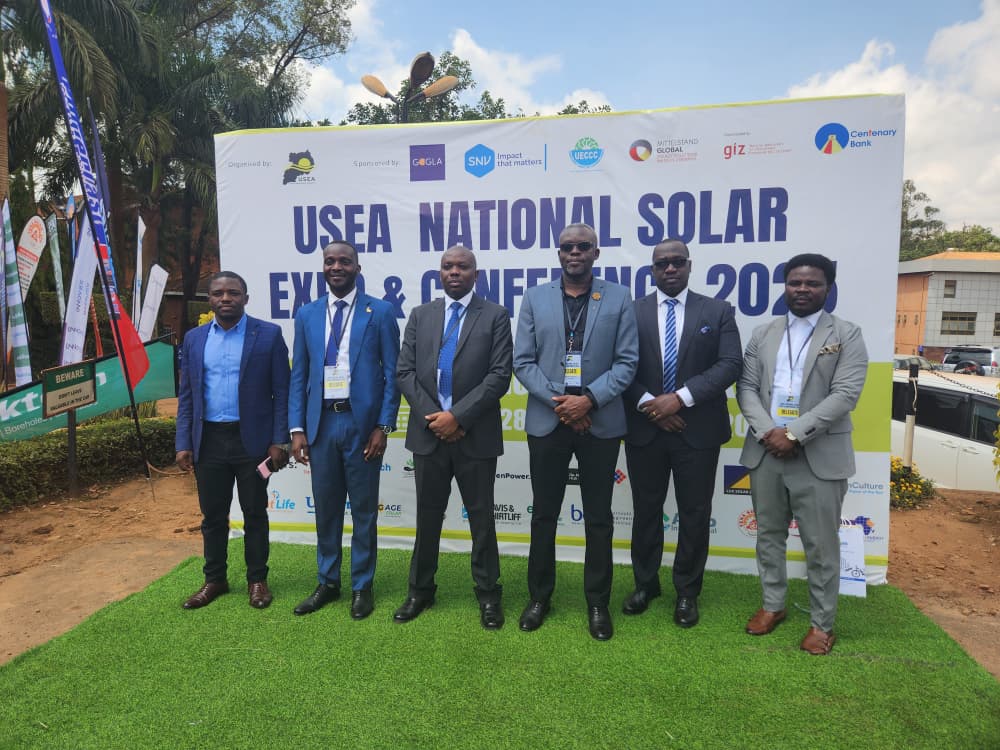
Uganda’s solar energy players have renewed calls for improved financing models and stronger quality standards to accelerate the country’s push toward universal energy access, with solar power now serving more Ugandans than the national grid. Opening the 2nd National Solar Expo 2025 at Silver Springs Hotel, Bugolobi, Uganda Solar Energy Association (USEA) Chairperson Douglas Baguma Karugaba said solar remains Uganda’s most cost-effective pathway out of energy poverty but warned that affordability gaps and counterfeit products threaten the industry’s progress. “Uganda has made significant strides in electrification, but the road ahead is still long. Today, only about 57% of Ugandans have access to electricity, and in rural areas, the rate is below 20%. Solar has become one of the fastest and most cost-effective solutions to bridge this gap,” Karugaba said
REC25 & EXPO
Discover limitless potential in renewable energy at REC25 & EXPO. Secure your spot by registering today
Upcoming Events
• Spark + Africa Fund
From microfinance institutions in rural Benin, to stove manufacturing companies in Zambia, to vertically-integrated fuel utilities in Kenya, we offer a range of financing solutions to companies throughout the supply chains of numerous clean and modern cooking fuels and appliances. The common thread is that companies play a role in scaling up the use of alternatives to dirty and unsustainable cooking practices in Africa.
Companies that meet the following criteria should reach out, including those that are:
Engaging in cooking solutions directly e.g. as a product designer, manufacturer, distributor, retailer, consumer finance provider, technology provider, etc.
- Engaging with potential consumers of cooking solutions e.g. as an off-grid solar utility, FMCG distributor or retailer, microfinance institution, mini-grid operator, etc.
- Operating in one or more countries in Sub-Saharan Africa.
Post-revenue with demonstrated proof-of-concept.
Be Where Innovation Meets Impact
Join us at upcoming NREP events designed to spark ideas, foster partnerships, and shape a sustainable future.
Funding Opportunities
GET.invest Finance Advisory
As the Team Europe One Stop Shop, GET.invest provides flexible advisory services, supporting your project or company to become investment ready and access financing that aligns with your needs.
Digital Energy Challenge
The aim of the Digital Energy Challenge is to support the development of innovative solutions for increased energy access, to facilitate the integration of renewable energies and to improve energy operators’ performance.
D-Prize Challenge
Startup grants of up to $20,000 are available for entrepreneurs launching new organizations. The goal is to increase the number of social impact ventures—whether for-profit, NGO, or charity—focused on addressing extreme poverty in low- and middle-income countries.
OPEN Fund for Women-Led Energy Businesses
Women entrepreneurs in the energy sector can apply for up to $100,000 in investment to scale their clean energy businesses.
Spark + Africa Fund
From microfinance institutions in rural Benin, to stove manufacturing companies in Zambia, to vertically-integrated fuel utilities in Kenya, we offer a range of financing solutions to companies throughout the supply chains of numerous clean and modern cooking fuels and appliances. The common thread is that companies play a role in scaling up the use of alternatives to dirty and unsustainable cooking practices in Africa.
Productive Use Financing Facility
A program by Karlsruhe Institute of Technology (KIT) and Circle Innovation supporting GreenTech, HealthTech, AgriTech, and e-mobility start-ups with tech development, market validation, and access to Germany’s innovation ecosystem.


